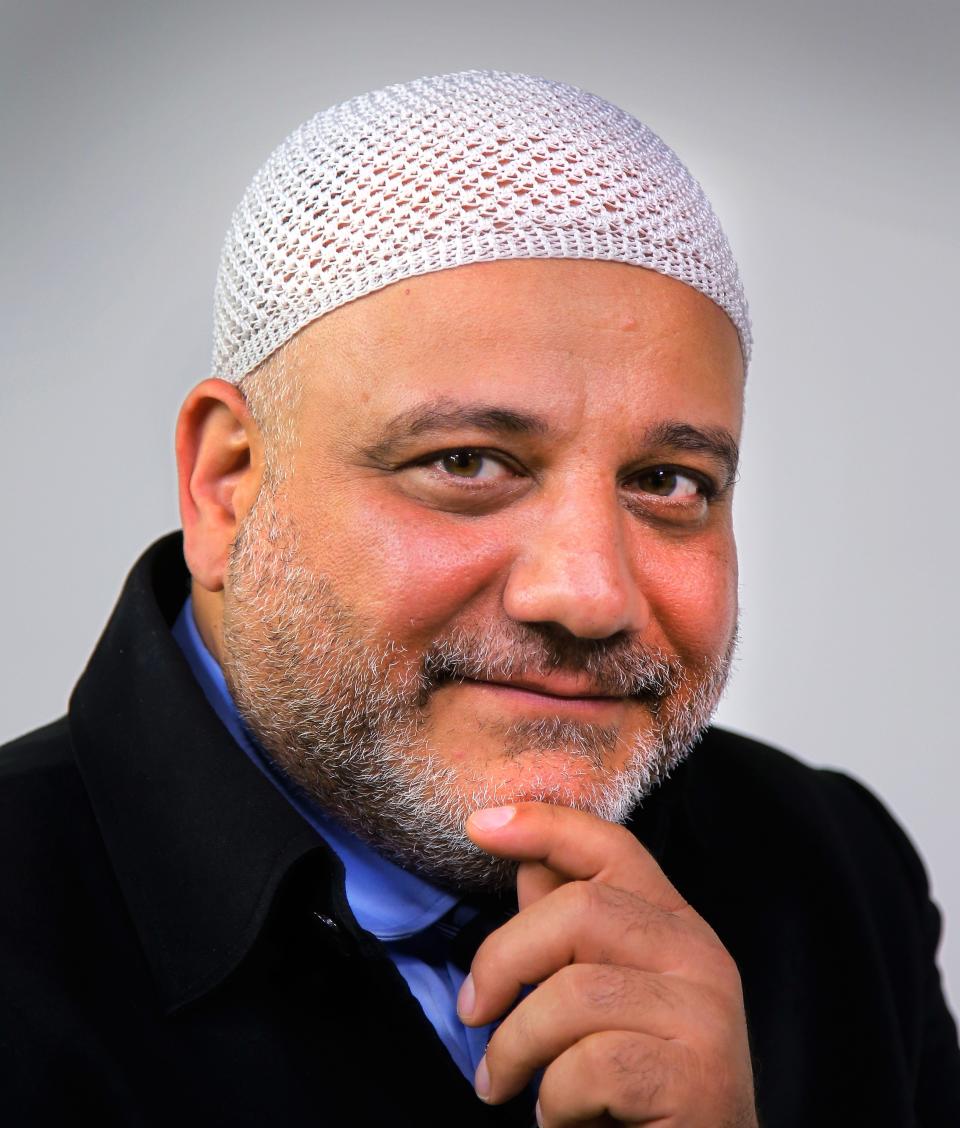Imam: Violence is not the answer. Collective punishment is not the answer
![Imam Imad Enchassi speaks Sunday during the Rally Against Hate at the state Capitol. [Photo by Doug Hoke, The Oklahoman]](https://s.yimg.com/ny/api/res/1.2/wijCJk92TgqkCK1qmuo2Vg--/YXBwaWQ9aGlnaGxhbmRlcjt3PTEyNDI7aD0xMzUz/https://media.zenfs.com/en/the-oklahoman/6a0bddf31c99565216367f8364b3ef5a)
My heart is heavy as I keep my eyes glued to the sparse updates from my father’s homeland, a place I have not been able to call home for many years. How eager many are to take sides, to pass judgment on people living through a conflict I have known throughout my life! What we are witnessing did not spring up overnight. The history of this holy land, its people, and the Abrahamic faiths with legitimate historical ties to it is a complex topic.
Trying to share my thoughts in a relatable way is nearly impossible, particularly when many, myself included, are anxiously awaiting to hear if their family members in Gaza are still alive.
Human Rights Watch calls Gaza the largest “open-air prison” in the entire world. Two million Palestinians (40% of whom are children under the age of 14) are crammed into an area of 140 square miles, approximately one-fifth the size of Oklahoma City. In this makeshift internment camp, created by the mass displacement and dispossession of Palestinians in 1948 and reinforced by decades of brutal Israeli occupation, life can only be described as devoid of dignity.
And yet joy still exists. We are, after all, human beings with inexhaustible wells of resilience that shine even in the darkest times. Children play soccer amidst the rubble in their streets. When electricity services are not cut off, families cook meals together, then sit outdoors to chat, where the bricks and stone have held the sun’s warmth all day. Young people, their movements restricted by blockade walls and soldiers with machine guns, dream of a future where they can go to school, own businesses, farm and fish as their ancestors have done for generations.
Our elders in Palestine tell us stories, and we remember those we have lost and hope for a time when peace and justice will flow through our lands.
The loss of innocent life is considered a great tragedy in Islam. The Holy Qur’an makes it clear that the taking of an innocent life is as if you have killed all humanity. The weight of that sin is great in the sight of God, so we vehemently condemn violence regardless of who is the perpetrator and who is the victim.
I don’t know the realistic solution to a 75-year-long conflict, but I do know that violence is not it. We stand at a crossroads where we must decide whether to retain our humanity. In Gaza, hospitals are being destroyed, relief trucks are blocked from entry, schools operated by the United Nations have been bombed ― the entire community is being punished for the misguided actions of a group.
In allowing these atrocities to continue, we risk losing sight of the fact that all human beings have the right to live free from threats to their safety. We risk becoming blind to the reality that this is a multifaceted conflict. We risk giving up on our goal of finding a path to justice and peace for the Palestinian people. And the deepest risk of all is the loss to our own humanity if we reduce the incalculable lives lost to simple collateral damage in a war 75 years in the making.
Like most religious traditions, the Qur'an teaches us that life is precious and worth protecting. Therefore, collective punishment is not the answer. When the eyes of the world are on us, it's up to us to decide that our belief in freedom and justice includes Palestine.

Imad Enchassi, Ph.D, is senior imam of the Islamic Society of Greater Oklahoma City and chair of Islamic Studies at Oklahoma City University.
This article originally appeared on Oklahoman: Oklahoma imam says Israeli-Palestinian conflict going on for 75 years
